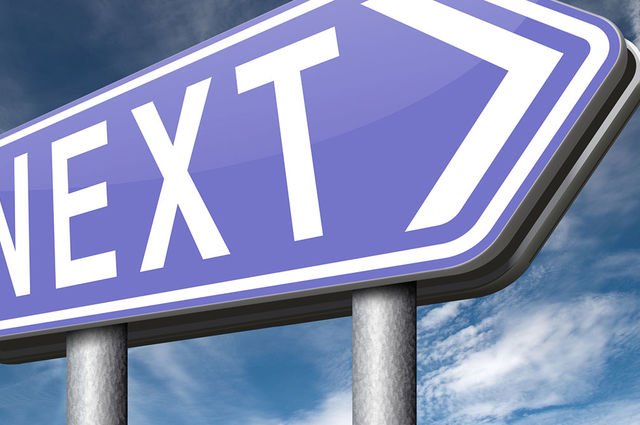We’re out of the rut. Now what?
11 experts shared their view
By the end of 2019, many of the thought leaders in revenue management had begun echoing a common theme, basically that the Revenue Management discipline was stuck in a rut. Industry-wide, Total Hotel Revenue Management was starting the become a joke. There was the longstanding complaint about the OTAs, but little being done about it. And the more recent debate about whether AI was on track to replace the Revenue Manager, despite only 15% of all hotels globally even having a revenue management system. Some openly warned that without evolving, the discipline risked losing relevance, and the influence and opportunities that go along it.
Then COVID-19 came out of nowhere to occupy the top of everyone's mind… overnight. Short term crisis management became the only job requirement. But these concerns did not go away, and if anything, the opportunity (and responsibility) that organizations possess to challenge every existing norm as they rebuild has only shortened the timeline.
The question to the Revenue Management community is: As we move out of the crisis management phase and towards the "next normal", how have your organization and responsibilities changed? What tools, technology, and processes have earned a permanent place in your routine going forward?
Sherri Kimes and I said back in December in Dubai that revenue management was in a rut, doing a lot of talks, but not taking a lot of action. The pandemic has forced action. Due to the necessity of surviving the pandemic and doing more with less, many non-value-add activities have been eliminated. There is increased communication with owners and asset managers, closer collaboration among departments, and creative thinking around driving revenue from the entire asset. If these activities become habits, revenue management could emerge from this pandemic with new momentum.
On the other hand, many revenue leaders are concerned that with the short-term, tactical focus required to survive the current uncertainty, they are not able to pay attention to longer-term, more strategic activities. Investment in revenue management systems has continued, and interest in automation has increased. While the pandemic was the perfect example of why a human/machine pairing is necessary, if revenue management fails to demonstrate continued strategic value, it will be easy for companies to reduce their investment in people in favor of more automation. Revenue management must continue to push their strategic value to the organization, moving beyond being tactical rate managers into being strategic revenue drivers, or risk becoming obsolete in the “new normal”.
When this question was previously asked in February 2020 (which now seems like a decade ago), the majority of respondents disagreed that revenue management is stuck in a rut. Respondents agreed that progress had been slower than anticipated, however, there was progress, nevertheless.
With the hospitality industry coming to an emergency stop throughout Q2, hotels around the world are now shifting back into 1st or 2nd gear and preparing for a long multi-year path to recovery.
What do Hotels need as they start from zero, in a market environment that is highly unpredictable and with fewer people having to do more?
1. Clean and reliable data from multiple sources to guide decision making for recovery. An RMS (especially decision-making systems) needs accurate and reliable data from a myriad of sources, often representing the best version of the truth. To obtain this truth, RMS providers are spending a huge amount of time and effort to ensure the data received from the various systems is accurate and timely in order to allow the systems to make the right decision. To do so, we must continually add new data sources to our feeds.
2. Capabilities to use this data for fast and iterative operational, total revenue forecasting and planning, with the ability to provide forecast visibility to a wider audience than before.
3. Dynamic and accurate pricing to deal with shortened lead times and changed market segmentation. Together with the need for rapid forecasting, the brisk changes in demand require accurate and automated pricing to be able to optimize a hotel's revenues (even if they are currently or often limited to 20 or 40 percent.)
4. Rapid forecasting is now a must. Automation to relieve overworked revenue leaders of manual processes, so they can focus on strategic decisions. Obviously, forecasting has become more dynamic, forcing companies to perform rolling 30-day or 60-day forecasts because the future beyond that is so unclear. Over the next 18 months, the industry will be in a state of rapid, iterative forecasting.
5. Insights into areas of opportunity for commercial leaders to take full advantage of the many stages of recovery and optimize business performance even in the current difficult market environment. You must have the right data in the right place, as well as the right business intelligence and revenue management tool to organize and interpret this data. These tools can help you understand your cost of distribution, cost by channel, sensitivity by channel, and more—much better than an Excel spreadsheet can.
If your revenue management capabilities do not encompass these critical areas, you and your hotel will risk being in a world of hurt over the coming months.
Do more with less seems to be the theme of the day as companies move forward. With the clients I've dealt with I am finding them looking to technology to fill in those gaps where human resources do not exist. Some of my clients are now looking at automated forecasting/budgeting tools, pricing tools, and new sources of data to help them understand the greater dynamics of the environment they are in. Additionally, from a structure standpoint, I see hotel companies combining the leadership of Sales, Marketing, and Revenue Management into one role of Commercial. This has been talked about for some time now and the time is ripe to take advantage of breaking these silos.
While COVID-19 has affected every sector across the globe, the hotel industry was among the hardest hit. As we transition into the next normal, one thing is clear: for the foreseeable future, revenue management as we know it has changed. Here are the 5 ways we are seeing revenue management shift, evolve and adapt as we move toward the next normal:
- Revenue management has hit the 'reset' button. The historical data that we've relied on for years is now much less relevant. Instead, hoteliers need innovative solutions that can better forecast during these times of volatile demand. This process requires a bottom-up approach - looking at inputs and insights to help guide and gauge early indicators of demand. This can be done by looking at pre-booking data (which helps more accurately pinpoint traveler return).
- It's time to create a dynamic compset. With COVID-19, the “static” compset is now only partly open or competing for the same limited demand — regardless of chain scale or star rating. Instead, what's needed now is adaptation in the form of a dynamic compset: one that empowers revenue managers to compare the right hotels at the right time, at all times. Advanced technology (such as AI) now suggests compsets based on market shifts, demand, relevance and events that are unpredictable (to a degree), providing hoteliers the capability to compare to their true competition — which should also include alternative accommodations.
- Forward-looking data should be weighed more heavily than historical data. While we don't know exactly when travel will return to pre-crisis levels, there are signs that we may interpret as signals to recovery. As travel does return, it will be different. COVID-19 has rendered year-over-year comparisons and OTB data much less reliable as indicators of demand. What's needed now? New sources of data that allow for monitoring of longer lead-times and decision making that's driven by data. In times of uncertainty, forward-looking data can help hoteliers better predict market shifts and align their pricing so that they can be agile and make necessary changes in the present to increase demand in the future.
- Top of funnel data will change the industry as we know it. I believe top-of-funnel data will revolutionize the industry - giving hoteliers the capability to better predict true demand — before a decision has been made and before it is on the books (as intent to travel, which hotels can work to convert). Understanding these true demand trends can help revenue managers create more realistic forecasts. RM's no longer need to rely solely on historical year-over-year comparisons or on the books as the only indicator of demand. The future of revenue forecasting is no longer just OTB: the future is also the intent to travel, which ultimately anticipates demand to bring an extra variable to factor into your budget and forecast models.
- Cross-functional teamwork is key. In the new normal cross-collaboration and alignment between commercial teams - especially those in Revenue, Marketing and Sales will be essential to achieving business goals. Specifically, these teams will need to be strategically aligned in order to spot short, mid, and long term revenue opportunities.
It is amazing to think about how much our industry has changed its focus in such a short period of time. Over the past few months at Crescent Hotels & Resorts we have shifted our focus on 3 main areas in order to support our associates and improve performance for our owners.
Analyze new bookings and leads: Our booking window has become much shorter on both transient and group. Over 60% of our transient bookings are now made inside the 3-day window. For group, we are seeing a lot of activity inside 30 days, that means we have less time to react and ensure we win the bid for new groups. Whether it is brand tools, property management systems, or crystal reporting, we analyze and compare all new trends in order to formulate a new strategy.
Monitor Pricing & Channels: Our segmentation has also shifted from group and business transient dominant, to retail, OTA, and leisure discounts. We have become more nimble in order to improve our speed to market strategies driven by analytical insights. To that, we have relied even more heavily on competitive pricing tools such as Rate360, OTA Insights, etc as we need to continuously monitor changes in our market pricing and positioning. Currently, there is an abundance of available supply, pricing is not as important as visibility. It does not matter if you are the lowest hotel on the market, if you are on page 7 of a market for a specific OTA, you will not get bookings. Not only we compete on pricing, but also just as important is the product we are offering. (pre-paid, mobile offer, package inclusions) we need to stay on top of it in order to boost our sort order and be exposed to more potential customers.
Share Best Practices: most of our associates have not experienced such volatility in our business. Our goal as leaders is to guide them through this difficult time. In doing so, we are relying more than ever on industry data and organizations, such as STR, Kalibri Labs, CBRE & HSMAI. We spend a lot of time attending webinars to listen and learn about new trends, emerging technologies, and anything we can apply back into our properties. We have increased the number of touchpoints with the field and continuously share best practices and new findings. We need to have strategic minds, read the tea leaves, generate strategies, and get some first mover's advantage.
The industry needs to face some important challenges, the first one incorporates more technology in our ecosystem, hotels and chains need to have more information on the daily basic decision, but they need to be more disrupted in this area, for example, smart destination software must come to our technology ecosystem.
Secondly, we need to be very open mind about home-based positions because this is going to be disrupted and probably it will change the industry .. imagine you are able to hire a top profile in the industry, but he/she is based in India ... imagine you could be able to hire this person independently where he/she is, or in the opposite way, you are able to work from Spain in the headquarters of the biggest hotel chain in India per example ... this could change the industry if we are smart enough to take advantage of this opportunity.
As a company and having a strategic view we need to adapt our workforce to the new reality because we face some uncertain and difficult moments and we need to readjust our team to this new reality, in addition, we need to be very focused on the next season/year because this 2020 is almost lost and we need to work very hard for the 2021 year,
Finally, in a very tactic perspective, we need to adapt our payment policies to the new reality and be more flexible with clients.
During all this month of pandemic crisis, one of the biggest changes we made, as a revenue management department, was changing the way we forecast adding the client´s nationality and the propensity of cancellation due to the status of the virus in their country of origin, this was a huge change and it helped us a lot in all these moments.
Thank you for the viewpoint, Scott.
First of all, I'd like to express my opinion that the discipline of Revenue Management will never lose its relevance, no matter what happens in the industry and in the world. A business simply can't be successful without some type of RM tactics in place. The fact that a large portion of hospitality properties in the world has been operating without it - is more of an atavism rather than a norm. And those are the properties who have suffered the most during COVID-19 and many of them will never recover.
What I see happening in the future in the Revenue Management discipline is a transition towards Profit Management. Again, COVID-19 taught us a lot. And one of the lessons was: it's not all about the top line, it's about how much money you ultimately take to the bank at the end of the day. Your STR report may show great RevPAR that is in line with your competition but if your operating expenses are too high - you can hardly be considered a successful operator. "Survival of the fittest" is what we are currently experiencing in many industries. COVID-19 introduced a mechanism of natural selection.
What we will start seeing soon is wider adoption of the Revenue (Profit) Management tactics and strategies among hotel operators of all tiers as well as an increase of RMS adoption rates among hospitality properties worldwide. Many hoteliers are already using the current situation to upgrade their tech. RM systems will start playing an increasingly central role in the overall hospitality tech ecosystem.
And those RMS companies who have learned the COVID lesson and realized that accurately measuring true demand fluctuations is more important than relying on LY data - will lead the pack.
I can only talk from our viewpoint - we make revenue management software for smaller hotels. It has been interesting for us to see that despite the terrible events hitting a lot of the hotel industry, we have still been receiving strong demand from new customers. When times are tough, you really need to be doing the best job possible with what you have, and I think that this necessity is driving smaller hotel owners (and chains) in the direction of revenue management software.
I published an article on Hospitality Net this week. The role of the Revenue Manager has to become much commercial. A deal maker for promotions, flash, tour operators, wholesalers, etc. Revenue Managers need to change the mindset from filtering demand to generating demand. See here for the full story: https://www.hospitalitynet.org/opinion/4100033.html.
To be sure, COVID has impacted everyone in their own unique way. Personally, the proliferation of tools like Zoom, Teams, and GoToMeeting have not only made some of my tasks as a professor way more efficient, I have spoken with old friends and colleagues more in the last four months than I had in the previous three years since making the leap to Switzerland and academia. When discussing the “next normal” with them, there seemed to be two common themes:
They are rebuilding smarter. Having shed most of the processes from fatter times that no longer make sense, a small group of experienced revenue leaders can leverage these new online communication tools and new-found societal acceptance of working remotely to grow with more specialized, entry-level positions. Most of the people I spoke with were looking for “someone to work from home managing inventory and distributing a few reports” or “someone creative to manage our smaller hotels' social media accounts.” Not experienced Regional Directors.
This is good for hotels since it ensures the sharpest and most experienced people are driving strategy and not doing busywork, and good for Revenue Managers since better-defined roles and hierarchy will lead to more opportunities and salary progression for those just entering the industry and veterans alike. Lacking the ability to spread costs over multiple hotels, independents will be at a disadvantage, perhaps creating an opportunity for third-party service providers.
They are focusing on TOTAL PROFIT, not just revenue, and not just rooms. Of course, NetRevPAR must stay top-of-mind in the search for new revenues. Period. But it goes way further. Most hotels should re-evaluate their length of stay strategy based on new cleaning costs and local regulations requiring a room to be vacant up to three days between guests. Low demand and minimum staffing levels make calculating the actual profit from an incremental restaurant cover really complicated. What about that meeting space?
The list goes on and on and the profile of a good Revenue Manager seems perfectly suited to fill the role. Individually, the key to taking advantage of the opportunity at hand is to be nimble and make the adjustment before someone else does. As a discipline of Revenue Managers, our relevance, and thus our future, depend on it.
In the pre-COVID-19 era, some revenue managers were indeed stuck in the rut. Who were they? Revenue managers who acted as mere “OTA Relationship Managers.” Or as comp-set pricing strategy plagiarists. Who used an Excel spreadsheet as their only technology tool. Who looked down on their digital marketing co-workers and their underfunded direct channel efforts.
Going forward, successful revenue managers will be the ones who:
- Act as the property's “profit optimization advocates”
- Use cloud RMS technology with real-time market and comp set analytics, website, and DMS analytics, and ORM/consumer sentiment data feeds to optimize performance, achieve real-time pricing in response to market dynamics, and enhance GOPAR (Gross Profit per available room). Now is the time to convince management and ownership that only a cloud AI-powered revenue management system (RMS) can help the property maximize revenues and successfully compete in the super complex post-crisis marketplace.
- Work hand-in-hand with their sales and marketing colleagues, as part of the property's integrated Revenue Optimization Team, consisting of the RM, sales, marketing, and CRM specialists, working together to a) sell the right room inventory to the right customers at the right price, b) acquire, engage, and retain the “best” guests, and c) decrease distribution cost, increase direct sales, and maximize profit.
- Develop a two-prong revenue management strategy, consisting of a)Short-term strategy (now through 6 months post-crisis), focused on leisure and unmanaged business travelers from hyper-local, local, drive-in and short-haul feeder markets, and b)Long-term Strategy (now through 12 months post-crisis), focused on the property's core market segments: corporate travel corporate groups, SMERFs, special occasions, weddings, distribution partners in long-haul feeder markets, etc.











